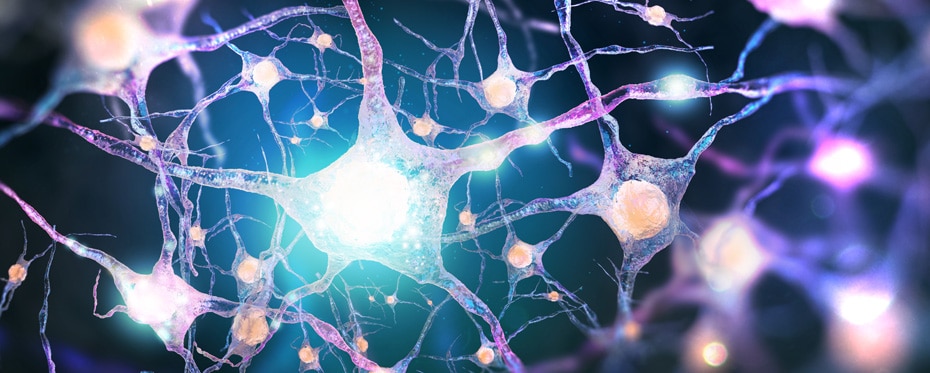Tag: biology
Adaptive experiments: Machine learning can help scientific discovery

Machine learning can help scientists design experiments. Scientific discovery relies on experiments that build our understanding of natural phenomena, and traditionally has been based on trial and error. Depending on the goal, different machine learning strategies can be used for adaptive experiments: active learning, maximising information gain, Bayesian optimisation, bandit approaches, and reinforcement learning. Cheng Soon Ong, machine learning scientist […]
Read More… from Adaptive experiments: Machine learning can help scientific discovery
The importance of nuanced scientific communication in an age of rising distrust

Dr Karen Jacqueline Cloete is an interdisciplinary scientific researcher whose work spans a multitude of areas. She is affiliated to the UNESCO-University of South Africa Africa Chair in Nanosciences-Nanotechnology, and the Nanosciences African Network-iThemba LABS-National Research Foundation. As well as currently working at the rich intersection between nanotechnology, chemistry and biology, Dr Cloete asks broader questions about the relationship between […]
Read More… from The importance of nuanced scientific communication in an age of rising distrust
How did bacterial glycogen branching enzymes evolve?

Glycogen is a sugar which plays important roles in carbon and energy storage in bacteria. Glycogen with a highly branched, compact structure offers a more durable energy source – a characteristic linked with bacterial environmental durability, such as the ability to survive in deep sea vents. Dr Liang Wang at the Institut Pasteur of Shanghai and Ms Qing-Hua Liu at […]
Read More… from How did bacterial glycogen branching enzymes evolve?
Progesterone signalling is involved in marsupial pregnancy

Marsupials have a notoriously short pregnancy, and, for many years, researchers believed that progesterone played no part in this process. However, Professor Yolanda Cruz from Oberlin College, Ohio, USA, has studied pregnancy in the lab opossum (Monodelphis domestica) most of her career and believes this is not the case. The researcher unveiled a critical period between day 5 and day […]
Read More… from Progesterone signalling is involved in marsupial pregnancy
Genuinely theoretical: The case for Philosophical Biology

Though his background is in biomedicine, Dr Sepehr Ehsani is currently completing his PhD in philosophy at University College London. In his time working in the lab, Dr Ehsani became more aware of the often-neglected importance of theory. What is sometimes called theoretical biology is not usually ‘theory’ for the most part, in the sense that it is not truly […]
Read More… from Genuinely theoretical: The case for Philosophical Biology
Stress, our hated guard: Or how theoretical physics could explain the phenomenon of life

In his new book – Generalized Lagrangian Approach and Behavior of Living Systems – Professor Uziel Sandler, from the Lev Academic Centre (JCT), explains how a specific generalisation of a Lagrangian function can help theoretical physics to describe the phenomenon of life. He demonstrates how the generalised Lagrangians allow Lagrangian dynamics to be used to describe the behaviour of living […]
An introduction to the information dimension

The difficulty of defining the true nature of information has sparked a rich, seemingly unending variety of questions over the past centuries; from the nature of the human soul to whether artificial intelligence can gain consciousness. Now Daniel Boyd, an independent researcher in the Netherlands, believes that these problems could be solved if we view information as a substance residing […]
Read More… from An introduction to the information dimension
Flowering phenology of spring ephemerals in the Appalachians

The historical records of when plant species burst into flower can highlight changes in seasonal events (phenology) that may mirror ecosystem responses to climate change. A team of four researchers, Jim Anderson (Professor of Forestry and Natural Resources at West Virginia University), Lori Petrauski (Field Ecologist for the National Ecological Observatory Network), Sheldon Owen (Extension Wildlife Specialist for the West […]
Read More… from Flowering phenology of spring ephemerals in the Appalachians
Explaining how the mind works: A new theory

How and why do humans think and act in the ways that we do? To answer this question, Dr Paul Badcock and his colleagues have recently proposed a theory of the human brain that combines evidence from evolutionary and developmental psychology, neuroscience, and biology. This theory posits that the human brain is a complex adaptive system, composed of relatively specialised […]
Advances in CNS drug development

The global prevalence of diseases affecting the central nervous system (CNS) demands the development of efficacious therapies for these unmet needs. However, drug development for CNS diseases is complicated by a limited ability to measure whether a drug candidate is accessing and affecting the human brain, particularly in early-stage human trials. Research by Dr Eugenii (Ilan) Rabiner and his colleagues: Dr […]